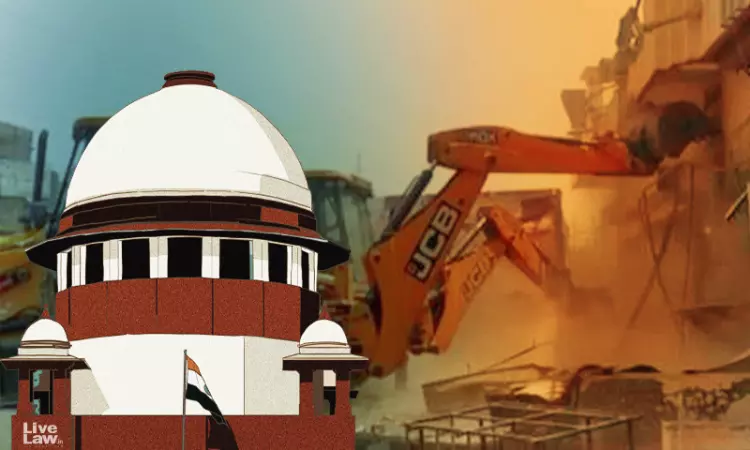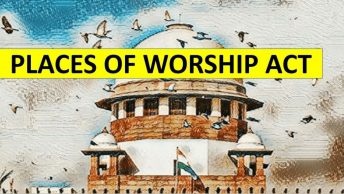Introduction
“That the right to life is illusory without a right to the protection of the means by which alone life can be lived. And, the right to life can only be taken away or abridged by a procedure established by law, which has to be fair and reasonable, not fanciful or arbitrary”, the Apex Court had affirmed as far back as 1985 in Olga Tellis and Ors. v. Bombay Municipal Corporation. The right to shelter has been positively held to be derived both from Article 19(1)(e) of the Constitution that secures the “right to reside or settle in any part of the territory of India” as well as from implied rights of a person secured under the procedure established by law under Article 21. Recent developments have brought to light multiple hasty and illegal demolitions carried out as punitive measures against accused or even convicts in criminal cases (often with communal undertones). In August this year, the district authorities of Khanjipeer, Udaipur relegated to rubble, the house of one Rashid Khan whose minor son had stabbed a Hindu boy in an altercation. It is alleged that the demolition was carried out upon an application filed by Hindutva groups. Such actions whether neglected, or explicitly executed by State authorities have far-reaching implications on Article 19(1)(e) as well as the due procedure of law safeguard under Article 21 of the Constitution.
Right to Settle or Reside, Unsettled
In Olga Tellis, the Court when deciding the right to livelihood of pavement-dwellers against forcible eviction observed that “they also rely upon their right to reside and settle in any part of the country which is guaranteed by Article 19(1)(e).” Therefore, courts across the nation have understood the right to livelihood and shelter to be an extension of the right to life which can only be freely achieved when rights under Article 19 are protected. Such an interpretation is not only negative in nature, preventing the State from arbitrarily depriving persons of housing, shelter or basic necessities, but puts a highly positive obligation on the State to secure the same by taking steps in that direction. In U.P. Avas Evam Vikas Parishad v. Friends Co-op Housing Society, the Court deciding upon the non-notification of housing schemes, held that the right to shelter stems from the right to residence under Article 19(1)(e), and can only be limited by the restrictions laid down under Article 19 (2) itself. When evaluating the cases in question, the evictions and demolitions have largely inflicted tragedy upon either Muslims or marginalized families and persons. The houses in almost all these cases are not “illegal constructions” but are houses built legally, with years of sweat and savings. The authorities responsible are allegedly claiming such houses to be either constructed on “forest land” or deeming them to be constructed on illegally acquired land. Even if this were taken to be a valid ground, they have failed to explain why such extreme measures have only been initiated against the residents when they are highlighted by way of criminal charges or are victims of crimes. The authorities have also continuously failed to justify why only a certain community or class is being targeted. Considering the above factors, the Court has now reserved the judgement and ordered that no demolitions can be undertaken without its permission.
In 2022, when hearing a batch of petitions challenging the Jahangirpuri demolitions, also communally stroked, the Supreme Court had expressed that such measures should not be used as “theatrics” to satisfy ulterior motives of governments or people in positions of power, and placed a stay on the same. Given the gravity of how multiple states have made victims of people in the name of disbursing justice, the UN Special Rapporteur on Adequate Housing, Professor Balakrishnan Rajagopal has demanded framing of guidelines, terming such punitive demolitions a “grave violation of human rights.” The present petition post the Udaipur incident is not the first time that the Courts have entertained this matter. Several High Courts have been successful in protecting persons who are accused or convicts from such appalling actions of the states. The Delhi High Court, in Ajay Maken v. Union of India defended even those who illegally encroached upon government land by terming a sudden, unnotified loss of housing “a human problem” that needs to be handled as per local procedural regulations and considering that “ the right to shelter is one which has to be protected by Courts.”
Another shortcoming of the justice mechanism is the lack of compensation and delay of remedies. Various victims of bulldozer justice have been waiting for years for their due. In turn, they have neither received reasons, nor the monetary aid required to rebuild what they lost. Courts have only recently taken a compensation-centric view to this issue. The earlier petitions on similar issues such as those concerning demolitions Khargone, M.P. saw neither a stay on demolition nor any reimbursement of a lifetime worth of loss.
Razing The Procedure Established By Law
While bulldozer action brutally violates the right to reside and settle under Article 19(1)(e), stripping lawful residents of their right to shelter, it also presents a grave violation of the procedure established by law. As per Article 21, “no person shall be deprived of his life or personal liberty except according to procedure established by law”. This “life or personal liberty” also encompasses the rights granted under Article 19 as decided in R.C. Cooper v. Union of India. Such violations of life and liberty should be even more precariously tread when the deprivation targets private property, as is the case in point.
Illegal bulldozer demolitions are also a stark violation of the precedent pronounced in Maneka Gandhi v. Union of India where the Court opined that Article 21 goes “beyond mere animal existence” and includes a life of dignity and that if such a right is divested, it must be only by through a “procedure established by law” which in turn is “fair, just, reasonable” and “not arbitrary, oppressive and unreasonable.” By relegating houses of convicts and accused alike, not only is the administration taking the law in its hands, it is doing so in violation of natural rights which require that notices must be sent to the residents, and a chance to present their case must be provided to them.
In Krishna Ram Mahale v. Shobha Venkat Rao, the Court emphasised that any occupant in possession cannot be evicted or deprived of such possession “except by recourse to law” even by the owner of such property. Such a principle if extended has made rights of an occupant, both illegal and legal, immune from any unlawful or unnotified divesting of such a place of residence.
The Punjab and Haryana High Court had also intervened to prevent demolitions pursued in Nuh after a religious procession erupted into a clash between the Hindus and Muslims and condemned the high-handedness of local officials as well as the potential ethnic targeting. In Nuh too, the houses pulled down were residential accommodations.
In these instances, even if an “illegal occupation” can be proved, it has to be dealt in isolation of the offence committed later, and not as a punishment for the latter. Here, less restrictive measures such as penalties, fines, or other punishments must be explored before initiating bulldozer razes that are responsible for giving even petty offences communal undertones. While authorities have repeatedly taken the defence of “illegal encroachment” and portrayed the accused as previous defaulters in land-related crimes, Courts have drawn distinctions between the two crimes- one of encroachment, and the other- a crime committee- which is responsible for investigating the offence committed later (here, the stabbing of the Hindu boy).
In the Rashid Khan case, the Bench was quick to question the sudden demolition in 2024, when notices had been issued in 2022. An important feature of these demolitions is that while previous attempts to demolish homes were in furtherance of the government’s objectives to take back state land, now it is being used as a hasty, arbitrary mechanism to intimidate or punish the accused thus, violating the audi alteram partem principle.
Lastly, the reserved judgement of the Court is expected to contain pan-India guidelines on conducting demolition, if any, and place checks and balances on the power of the local administration.
Conclusion
The existence of a secular, welfare state protected from the ravages of majoritarianism is the moral and constitutional duty of all three branches of the government. However, the wheels of justice put in motion by Courts are often, at too late a stage, to prevent any real harm. Consequently, the heavier burden lies on the legislature to portend executive action or inaction that stems from, or results into a majoritarian, arbitrary and despotic state. Otherwise, such a State would end up pushing its subjects into a rigmarole of seeking a form of justice that victimises, instead of liberating them.
The Author (Vrinda Chaturvedi) is a fourth year student at HNLU and an Analyst for the LAOT Blog.
[Ed Note: This piece was edited by Sohina Pawah and published by Baibhav Mishra from the Student Editorial Board]







Awesome
0uz8ed
sgmqya
ul7fxm
Barınaktan, sokaktan ya da gönüllülerden sahiplendirilen sevimli dostlarımız sahipleniyorum.com’da sizi bekliyor. Hayvanseverler için hazırlanan modern arayüzü ve hızlı filtreleme seçenekleriyle aradığınız dostu kolayca bulun.